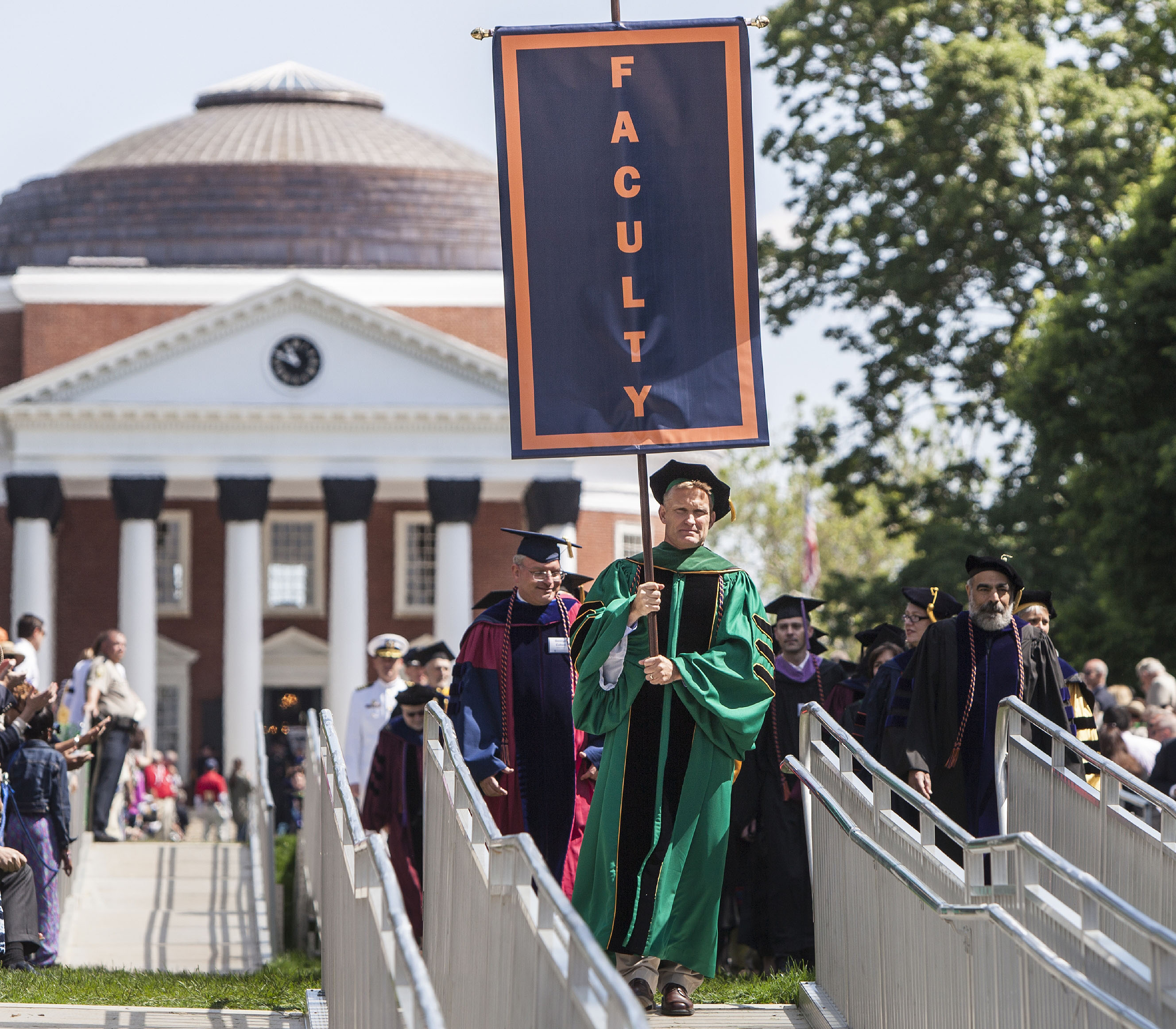Investments to enhance the educational experience, build the faculty and sustain the University of Virginia’s affordable excellence are at the heart of the 2014-15 fiscal year budget proposal.
The Board of Visitors will consider the $2.79 billion proposal – which funds the operations of U.Va.’s Academic Division, Medical Center and the College at Wise – at its meeting June 5 and 6.
“The budget proposal directs University resources to the best possible uses in support of strategic institutional priorities for all three of our divisions,” Executive Vice President and Chief Operating Officer Patrick Hogan said. “Key objectives are to continue providing a world-class public education at a tremendous value on Grounds and in Wise, and to offer the best patient care in the safest environment.”
Under the proposal, the budget would increase by 3.7 percent compared to the current fiscal year.
The Medical Center budget proposal projects an increase of 7.9 percent, to $1.28 billion, versus the current year, led by growth in outpatient services, opening the Battle Building for pediatric services and implementation of an outreach strategy.
The College at Wise budget is projected to increase by 4.3 percent, to $41.5 million. Priorities include retention and graduation rates, expanding the summer college program, implementing a STEM (science, technology, engineering and mathematics) Early College Academy Pilot Program and merit increases to support teaching and research faculty.
U.Va.’s proposed Academic Division budget for fiscal year 2014-15 increases slightly over 2013-14 to $1.47 billion, and supports undergraduate enrollment growth of 155 students, 70 percent of whom will be Virginia residents. Sixty-nine percent of the division’s expenditures are focused on instruction, research and public service, academic support, student services and financial aid.
The Board of Visitors previously approved resolutions in support of the Cornerstone Plan, U.Va.’s five-year strategic plan, and a strategy to make faculty compensation more competitive with U.Va.’s peers. In April, the board set tuition and fees for the coming academic year, rates that both maintain the University’s value proposition while providing the foundation for the FY 2015 budget initiatives.
The coming year’s budget, which takes effect July 1, will continue to implement Cornerstone Plan strategies.
The budget proposal advances the University’s effort to provide more competitive faculty compensation – an imperative to maintaining academic excellence as a generation of faculty approaches retirement. The budget would increase the faculty-salary pool by 4.75 percent, with raises awarded based on merit. U.Va.’s average faculty salary currently ranks No. 27 among its Association of American University peers, and the board-approved goal is to advance into the Top 20 in the next four years.
The University anticipates that it will need to replace as much as half of its faculty in the next seven to 10 years, due primarily to generational turnover.
“We have an opportunity in the years ahead to further enrich the student experience by expanding cross-disciplinary coursework, degree programs and research initiatives,” Executive Vice President and Provost John Simon said. “Retaining outstanding faculty and attracting the best faculty to join in this effort is essential. Their quality is the quality of the education.”
The budget proposal also supports additional components of a comprehensive system of academic and career counseling known as “Total Advising.” The career-advising segment was launched in the current fiscal year, and the proposed budget will enable creation of a student leadership program, expand advising seminars and further develop opportunities for alumni to engage with students who are about to begin their careers.
The budget fully supports the AccessUVa financial aid program, the University’s commitment to meet 100 percent of the demonstrated financial need of students. U.Va. offers admission on a “need-blind” basis, in which a student’s financial situation plays no role in the evaluation of his or her application. The University is one of only two public institutions in the country with these policies.
In crafting the proposed budget, the University administration had to consider significant projected increases in operating costs, including salary adjustments for faculty and staff, increasing health care expenses and the University’s mandated contribution to the Virginia Retirement System. But it also was able to moderate the effects of a portion of those higher costs through more efficient operations, including wellness programs, procurement and process efficiencies, and reallocation of existing resources. These efforts combine to produce an estimated $11.5 million in operational savings in the Academic Division alone.
“Our success in identifying cost-savings opportunities is a big reason the University consistently earns national recognition for efficiency, value and return on investment for students and families who choose U.Va.,” Hogan said.
Kiplinger magazine ranks the University No. 2 among “Best Values in Public Colleges,” while Princeton Review ranks U.Va. the third-best value among public universities. U.S. News & World Report ranks U.Va. the No. 2 public university overall.
Media Contact
Article Information
May 28, 2014
/content/uva-budget-proposal-advances-institutional-priorities

